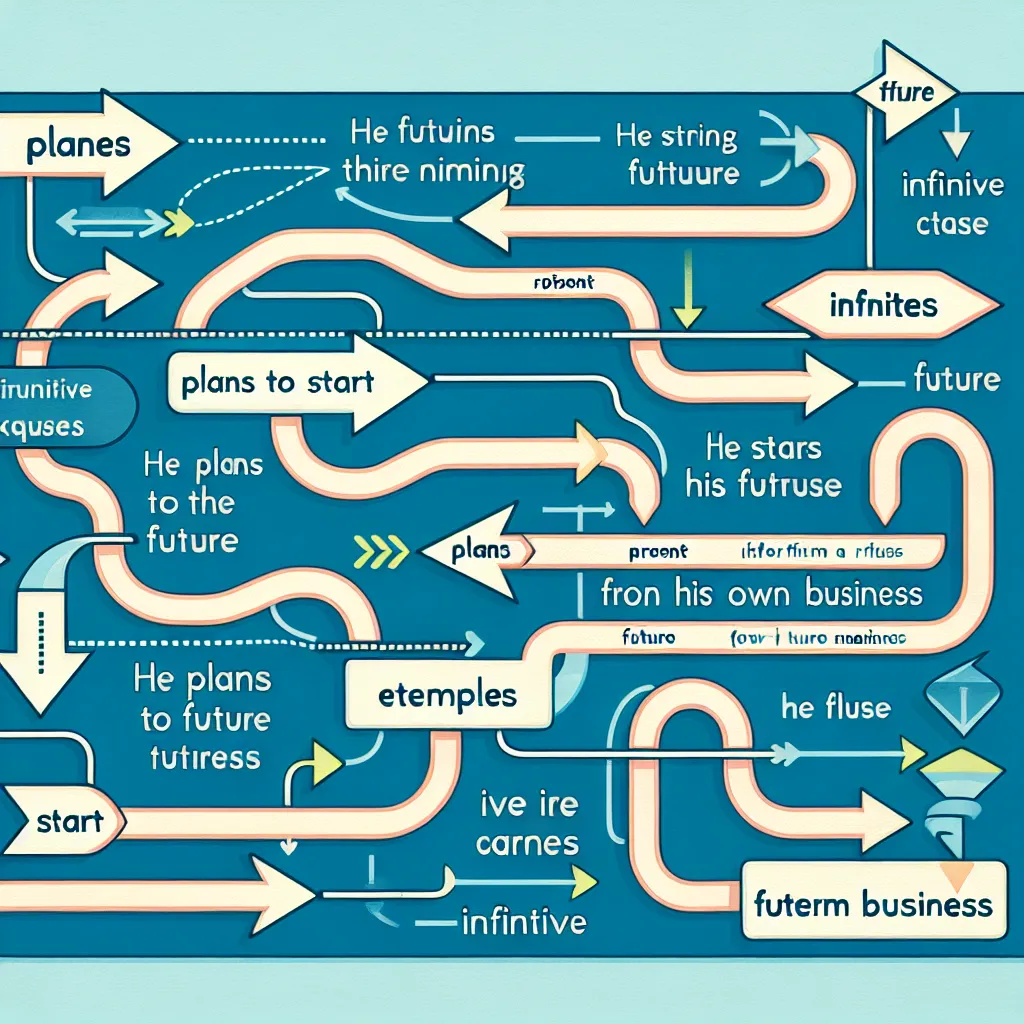Infinitive clauses with future meaning are essential grammatical structures that can significantly enhance your IELTS performance. These clauses express future actions or intentions using the infinitive form of a verb. Understanding and effectively using these structures can help you articulate complex ideas and demonstrate a high level of English proficiency in your IELTS exam.
Understanding Infinitive Clauses with Future Meaning
Infinitive clauses with future meaning are commonly used to express plans, intentions, or expected future actions. They typically follow certain verbs, adjectives, or nouns and provide additional information about future events. In IELTS, mastering these structures can help you express your ideas more precisely and sophisticatedly across all sections of the test.
For example:
- I hope to travel abroad next year. (expressing a future intention)
- The company plans to expand its operations in Asia. (indicating a future plan)
- She is determined to succeed in her IELTS exam. (showing a strong future intention)
- We are excited to announce our new product launch. (referring to an upcoming event)
- The government aims to reduce carbon emissions by 2030. (stating a future goal)
In each of these examples, the infinitive clause (in bold) expresses a future action or intention, adding depth and clarity to the sentence.

Grammar Formula and Structure
The basic structure for infinitive clauses with future meaning is:
[Subject] + [Verb/Adjective/Noun] + [to + base form of verb]
Here are some common verbs, adjectives, and nouns that are often followed by infinitive clauses with future meaning:
- Verbs: plan, hope, intend, expect, aim, decide
- Adjectives: eager, determined, likely, certain, ready
- Nouns: plan, decision, intention, goal, ambition
Applying the Structure in IELTS Writing
In IELTS Writing Task 2, you can use infinitive clauses with future meaning to discuss plans, predictions, or potential solutions. For example:
“Governments need to implement stricter regulations to reduce pollution levels in urban areas. Many cities plan to introduce congestion charges to discourage private car use and encourage people to use public transportation.”
This paragraph demonstrates the use of multiple infinitive clauses (in bold) to express future actions and intentions, showcasing a sophisticated command of English grammar.
Using Infinitive Clauses in IELTS Speaking
In the IELTS Speaking test, infinitive clauses with future meaning can help you articulate your plans and aspirations more effectively. For instance:
Examiner: What are your plans for the future?
Candidate: “I hope to pursue a master’s degree in environmental science. After that, I intend to work for an international organization to contribute to global sustainability efforts. I’m determined to make a positive impact on the world.”
This response uses several infinitive clauses to express future plans and intentions, demonstrating a high level of grammatical proficiency.
Advanced Usage for Higher Band Scores
To achieve higher band scores in IELTS, it’s crucial to use infinitive clauses with future meaning in more complex and varied ways. Here are some advanced techniques:
-
Combining with other structures:
“Having decided to study abroad, I am now eager to improve my English skills to ensure I can fully benefit from the experience.” -
Using negative infinitives:
“The company is unlikely to succeed if it fails to adapt to the changing market conditions.” -
Incorporating adverbs:
“We aim to significantly reduce our carbon footprint by actively promoting sustainable practices.” -
Using perfect infinitives for completed future actions:
“By this time next year, I hope to have completed my research and to be preparing for my final presentation.”
These advanced uses demonstrate a sophisticated command of English grammar, which can help you achieve higher band scores in both the Writing and Speaking sections of IELTS.
Common Mistakes to Avoid
When using infinitive clauses with future meaning, be aware of these common errors:
-
Confusing infinitives with gerunds:
Incorrect: “I am planning studying abroad.”
Correct: “I am planning to study abroad.” -
Using the wrong form of the verb:
Incorrect: “She hopes to studying medicine next year.”
Correct: “She hopes to study medicine next year.” -
Forgetting ‘to’ in the infinitive:
Incorrect: “We expect finish the project by next month.”
Correct: “We expect to finish the project by next month.” -
Using infinitives where gerunds are required:
Incorrect: “I look forward to meet you soon.”
Correct: “I look forward to meeting you soon.” -
Overusing infinitive clauses: While they are useful, avoid using them in every sentence. Vary your sentence structures to maintain a natural flow in your writing and speaking.
By avoiding these common mistakes, you can ensure that your use of infinitive clauses with future meaning enhances rather than detracts from your IELTS performance.
Conclusion
Mastering infinitive clauses with future meaning is a valuable skill for IELTS success. These structures allow you to express future plans, intentions, and expectations with clarity and sophistication. By incorporating them effectively into your writing and speaking, you can demonstrate a high level of grammatical proficiency and enhance your overall performance in the IELTS exam.
Remember to practice using these structures in various contexts, and don’t hesitate to incorporate them into your responses for topics such as personal goals, global trends, or societal changes. With consistent practice and attention to detail, you’ll be well-equipped to use infinitive clauses with future meaning confidently in your IELTS test and beyond.
For further practice, consider applying this grammatical structure to discuss future technological advancements, environmental conservation efforts, or personal career aspirations. These topics are frequently encountered in IELTS tasks and provide excellent opportunities to showcase your mastery of infinitive clauses with future meaning.